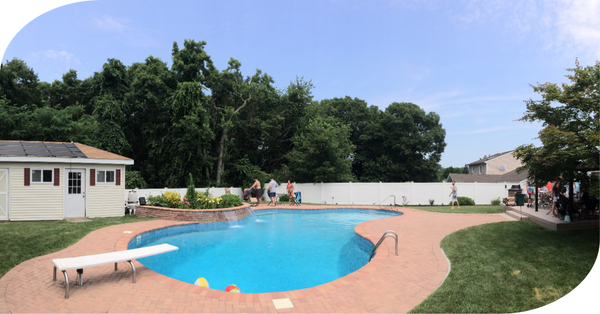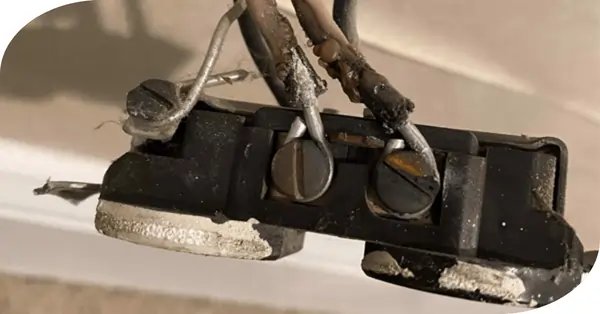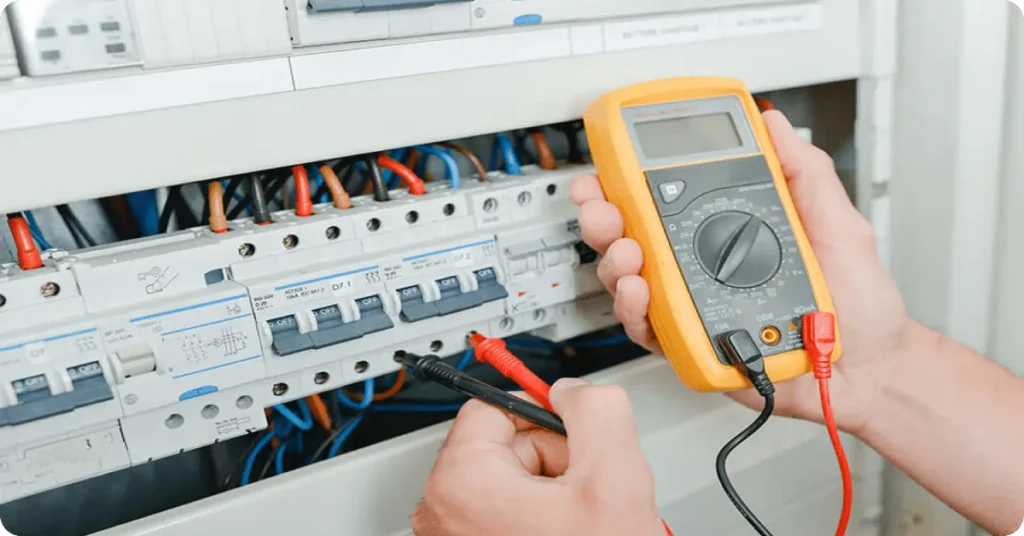Pool Electricians
Water and electricity don’t mix. As fundamental as that sounds, some people just don’t get it. Countless tragic deaths and injuries result each year because of faulty pool wiring. You need to work with genuine master electrician that specializes in pools when dealing with any pool component that needs electricity. Pool wiring is not a DIY project. Many people don’t realize how many electrical components exist with even the most basic of pools. Lets get educated on what a pool electrician is, what components need electricity, and how to go about finding an electrician specializing in pools.
What is a Pool Electrician?
Simply enough, a pool electrician is a master electrician that specializes in pools. For obvious reasons, many electrical contractors avoid pools because of the risks involved if they do not perform the installation correctly. There are those of us, myself included, that specialize in pool wiring. It requires sharp attention, constant continuing education, and diligence to complete these projects safely. There are lots of sub categories of electricians. A great industrial powerplant electrical contractor may not be privy on pool wiring and vice versa. In short, pool wiring requires close oversight and a special company that has lots of experience with pools. A good pool electrician will work with pool companies as well, building a pool takes coordination between both contractors as you’ll learn with pool lighting.
Pool Components Needing Electricity
Most people are unaware of all of the components of a pool that need to be wired. Let’s dive in to the many pool components that need electricity to function and some of the things that a pool electrician does. This is not an exhaustive list but these are the most common things pools need power for. Take a look at the following image for an idea of what we’re going to be talking about.
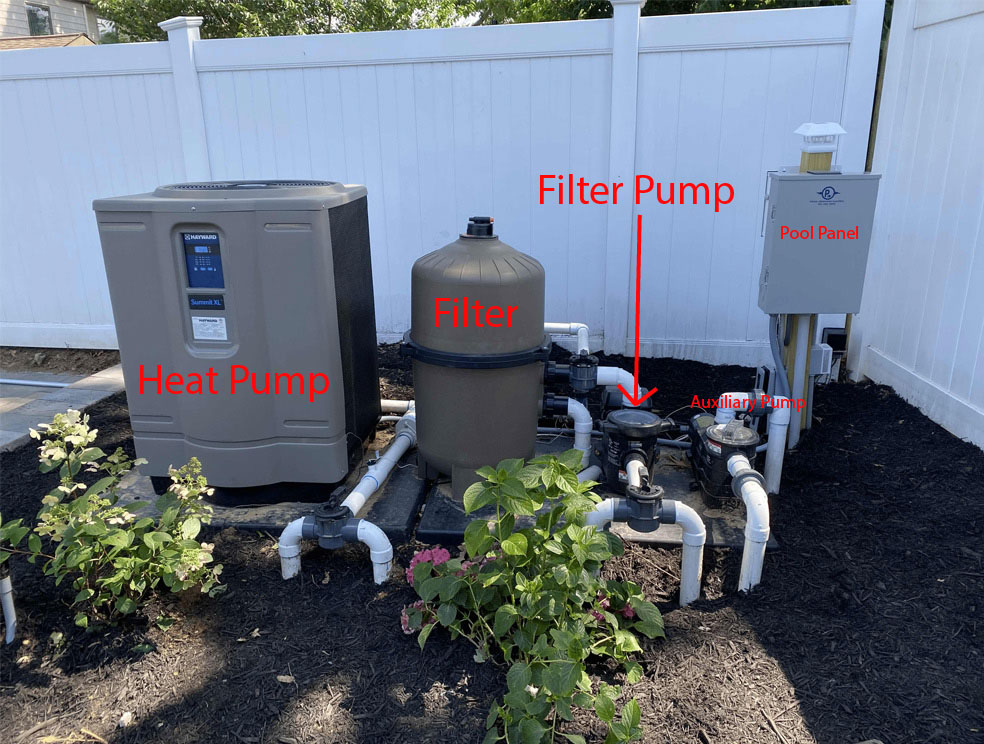
1. Pool Electric Panel or Timer
Firstly, the electricity needs to be brought to the pool area for distribution to the components such as the pumps, heater, lights, etc. Typically, an electrician installs a pool panel, which can range from 30A to 100A. For smaller pools with no heaters or other components, a simple timer will work just fine. This is the most invasive part in terms of the electrical install. Most times, there will be trenching, conduit installation, and a wire pull to get the power from your main electrical panel to where it needs to go for your pool panel.
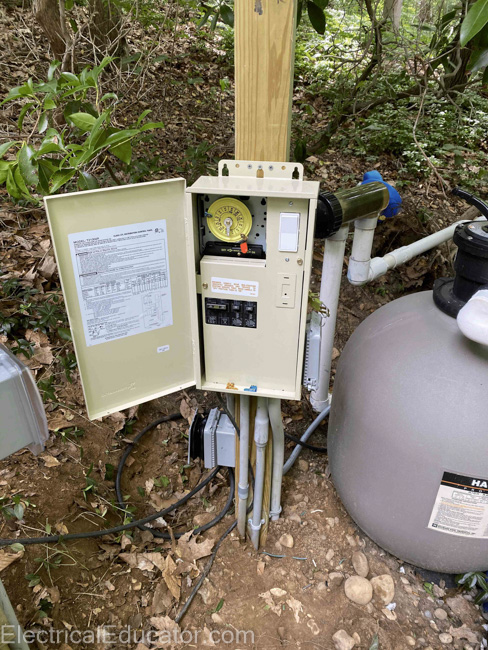
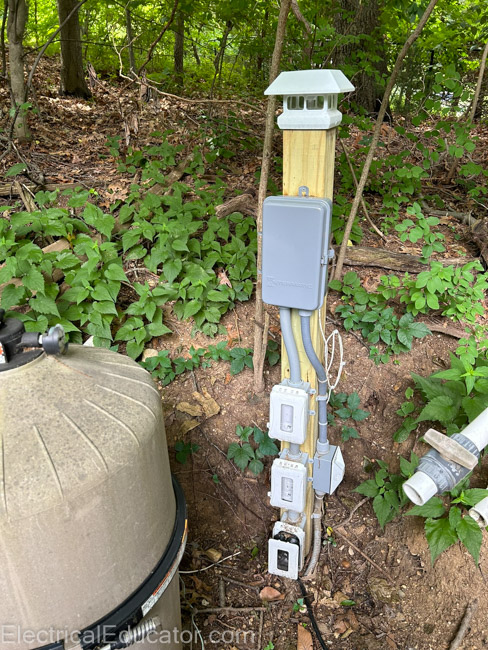
2. Filter Pumps
The next component that all pools have is the pump. There is always a filter pump that circulates water throughout the pool. Sometimes there will be auxiliary pumps for features like waterfalls, slides, fountains, and other things like that. The pumps need to have GFCI protected circuits installed to power them from the pool panel. The pumps themselves also need to be wired with a cord and they need to be bonded at minimum. Some will also need automation wiring installed if there is an automation unit, we’ll get to that soon. Here is a typical variable speed pump with bonding and the cord ends installed:
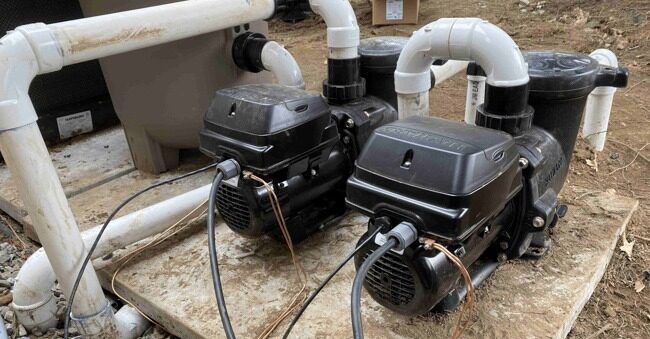
3. Bonding System
Now that we have a filter pump moving the water and a timer telling the pump to go on, we need to make sure we stay safe in the pool. I’m talking about the pool bonding system or “pool grounding” as some people (incorrectly) refer to it. The purpose of pool bonding is to mitigate any dangerous voltage gradients that may arise and cause shock/electrocution. It is an extremely important part of any pool system and is responsible for saving countless lives. Head over to my more in depth pool bonding article if you want to learn more. For now I’ll leave you with a simple diagram of the parts of the pool that require electrical bonding. This by no means is exhaustive and this is NOT a DIY job. You NEED to hire a licensed electrician specializing in pools for this.
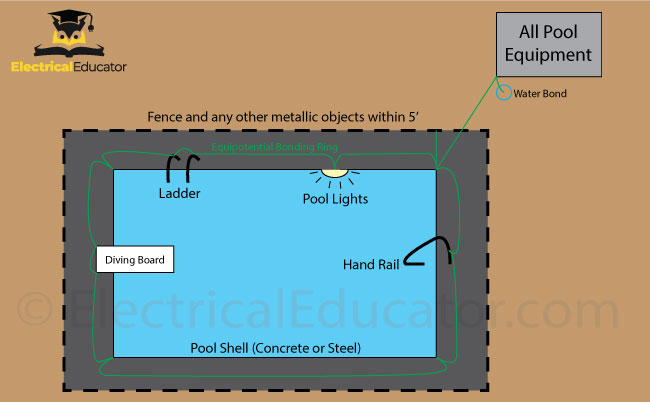
4. Lights In Pool
Now we’re in the realm of things that aren’t necessary but are common, especially with new pools. Pool lights are a wonderful addition and the options today are endless. Different lights will have slightly different install procedures. They will all need at least GFCI protection, something to turn them on, and bonding at both the deck box (where the lights are electrically connected) and the actual niche (where the light sits in the pool shell). Again, VERY important with the GFCI protection and proper bonding here with the pool lights. Knowing how to properly connect these things is what separates a “pool electrician” from those who don’t do pools. Also of note, the installation of the actual pool light fixture is the job of a pool contractor. The wiring from the switching mechanism to the deck box (connection away from the pool) is what the electrician will wire.
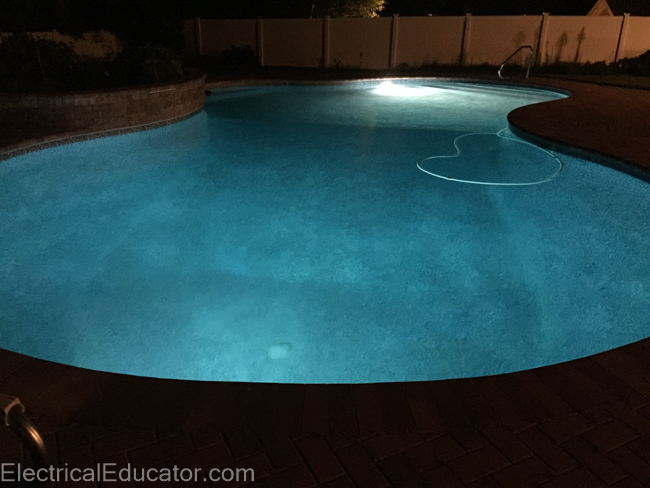
5. Heaters
Far more common today than in the past, pool heaters make swimming pools far more enjoyable. They typically come in two varieties: Gas Heaters and Electric Heat Pumps. Gas heaters use minimal electricity, it is only needed for the fan and control circuit. Electric heat pumps use substantially more electricity, usually a 50A circuit. Again these need to be GFCI protected and bonded to the pool system. See Pool heaters and GFCI protection for more information on that.
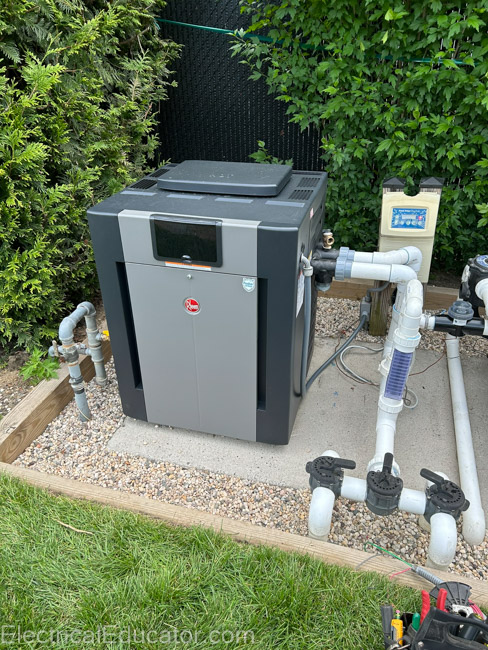
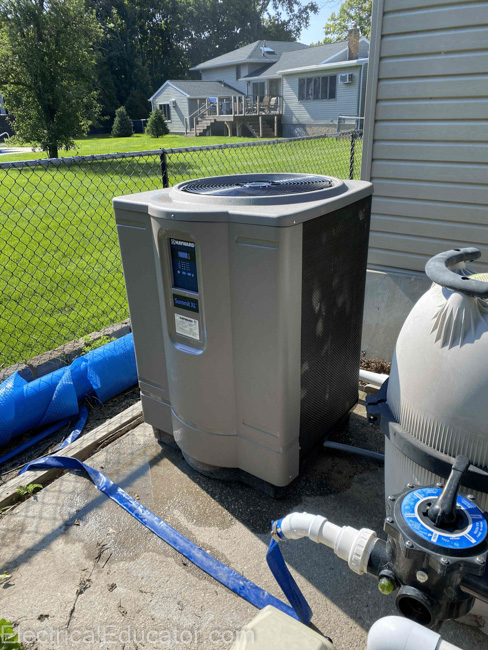
6. Salt Generators
Now we’re in the realm of things that make life as a pool owner easier. Salt generators have transformed pool ownership over the last decade by making maintenance far easier. We all know pools use chlorine to sanitize the water, a salt generator uses a chemical process to convert ordinary table salt (NaCL) to chlorine! Increasing the chlorine level in the pool now becomes simply adjusting a knob. The other big benefit is a much lower overall chlorine level because it stays consistent. A pool electrician will know exactly how to wire and mount the various brands of salt generator. These need GFCI protection, which is commonly the same as the main filter pump. Additionally they need to be bonded to the pool system. Are you seeing a theme here with bonding and GFCI protection? Here’s what the salt generator controllers look like
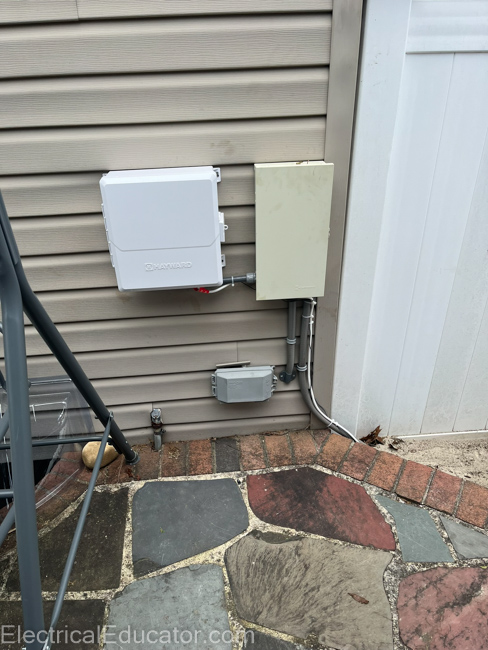
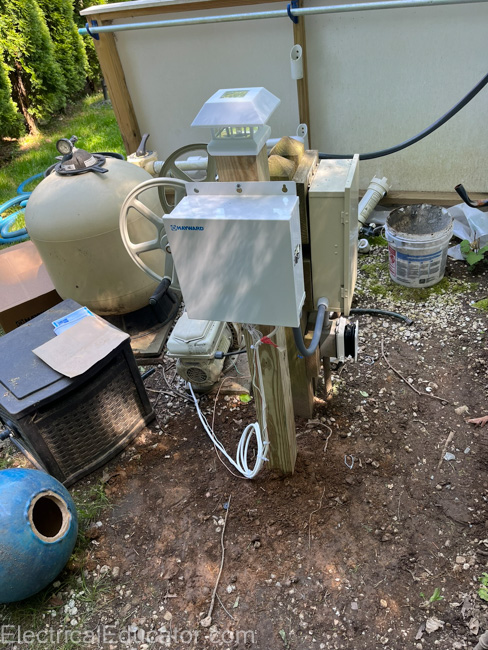
7. Automation
The last pool component I want to bring attention to are automation systems. They have been around for decades but are gaining popularity quickly because of newer technology. Today, one can control pool components via smart phone. I personally recommend checking pool equipment and water chemistry regularly, but having smart phone control over the pumps, lights heater, salt system, etc. does make life easier. Automation systems enable color changing lights, fountains, lights external to the pool, and more at the tips of your fingers. Popular companies that make automation equipment are Jandy, Hayward, and Pentair. These systems involve control wiring in addition to regular power and definitely require the skill of a specialist.
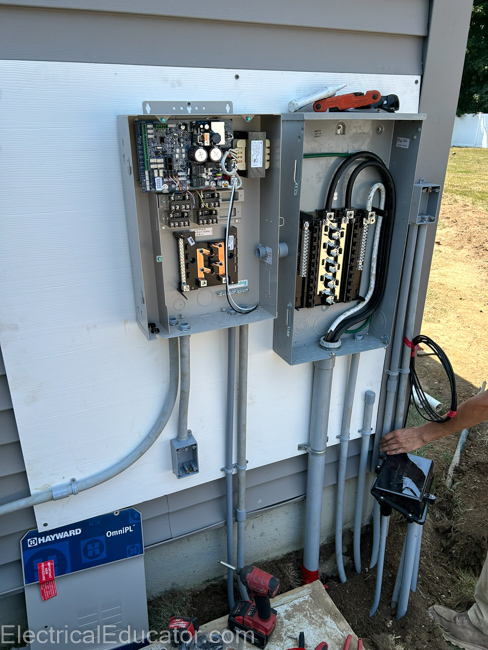
Additional Pool Electric Resources
I recommend everyone to check out the free resources that Mike Holt shares with the world in order to make pools safe around the country. Specifically if you’re an electrician reading this, Mike Holt is an excellent resource. Don’t be afraid to reach out to a specialist if you think your pool system may not be up to par. For my homeowners learning about pool electrical components, ask lots of questions when searching for an electrical contractor to wire your pool. Ask your pool professional if they recommend any specific electricians. Lastly, check with your local county to make sure that whoever your hiring holds a current master electrician license and insurance in your area.
Closing Thoughts
Pools are an incredible addition to any house. Like anything involving electricity, care needs to be taken to ensure the installation is just right and as safe as can be. Use this information to educate yourself so you can have an intelligent conversation and hire the right pool electrician when it comes time to do your project or add a new piece of equipment. If you need assistance finding an electrician, head over to our National Electrical Registry to find an electrician who specializes in pools near you today. Thank you for reading!

